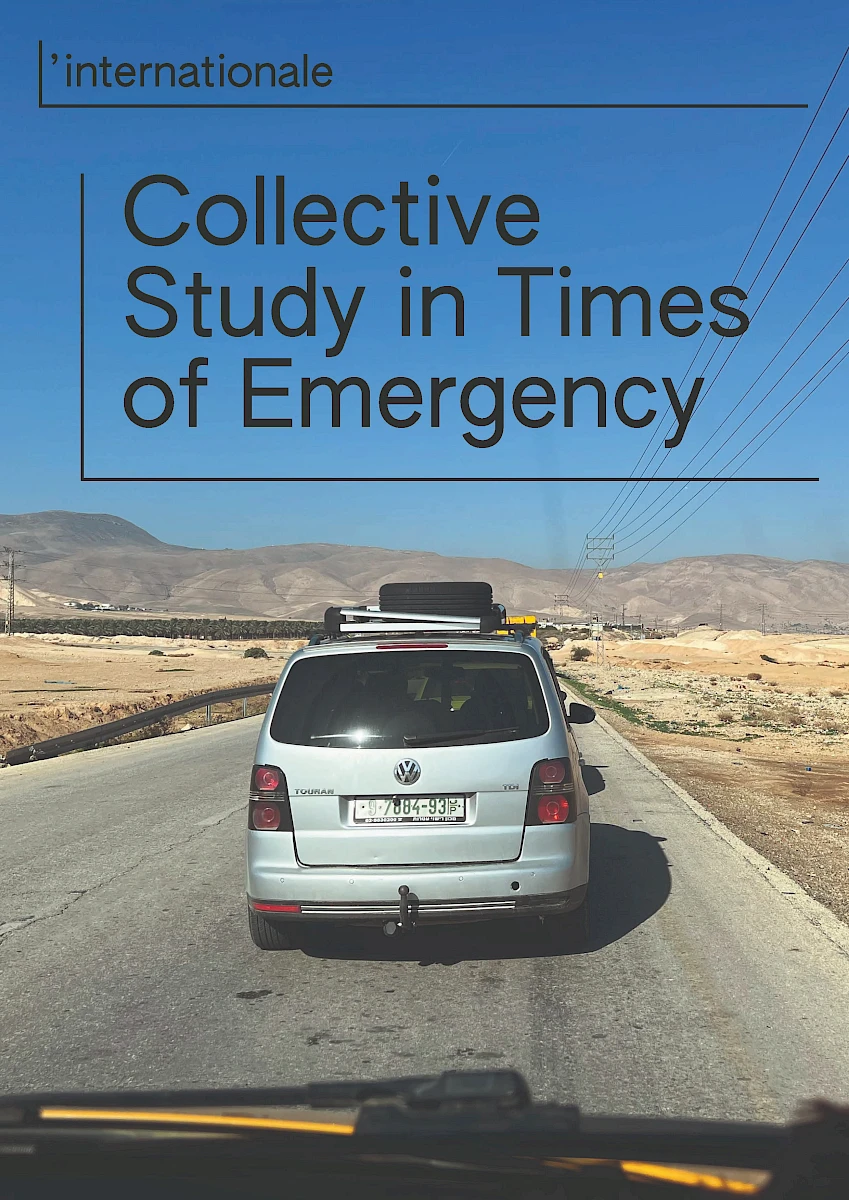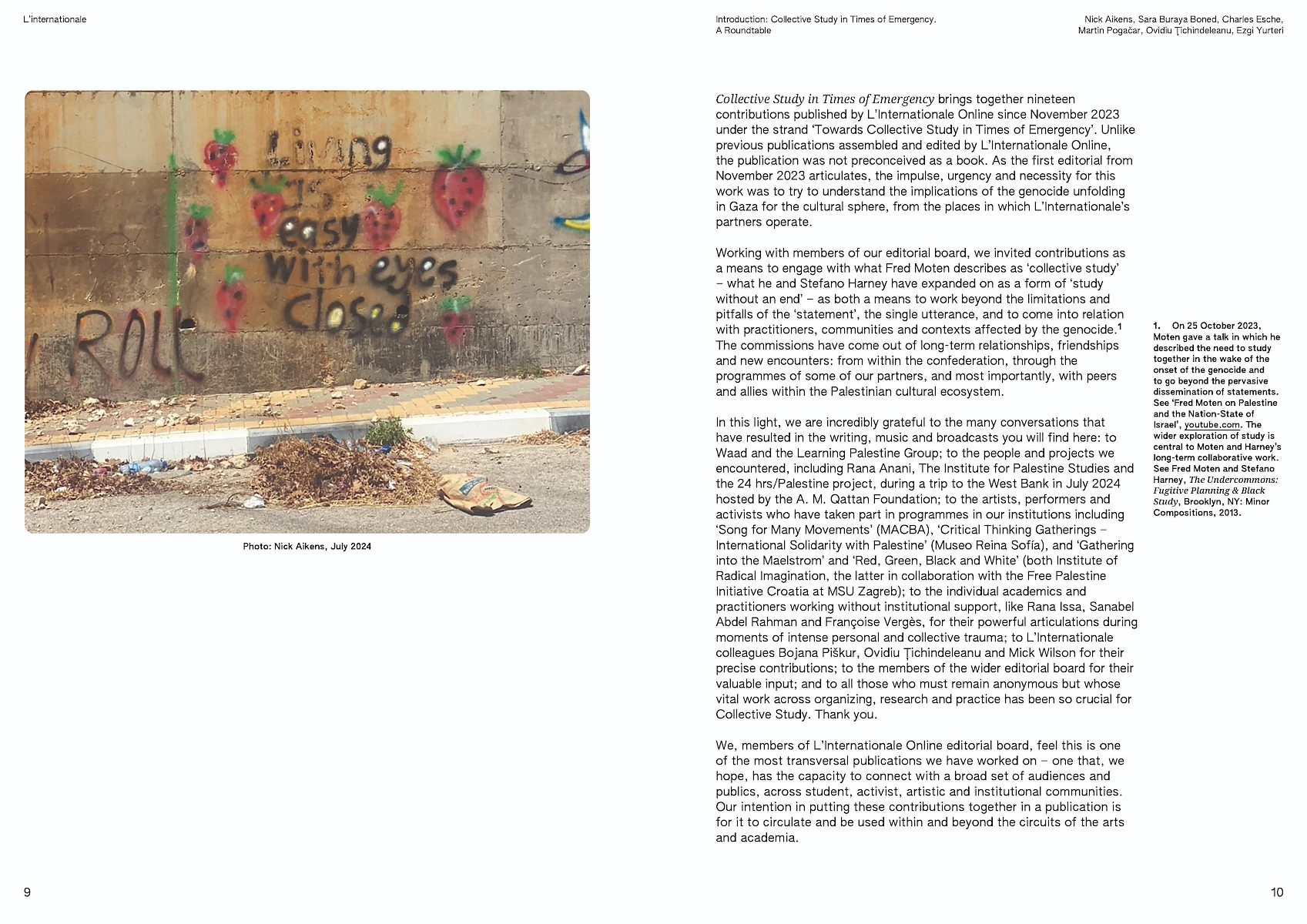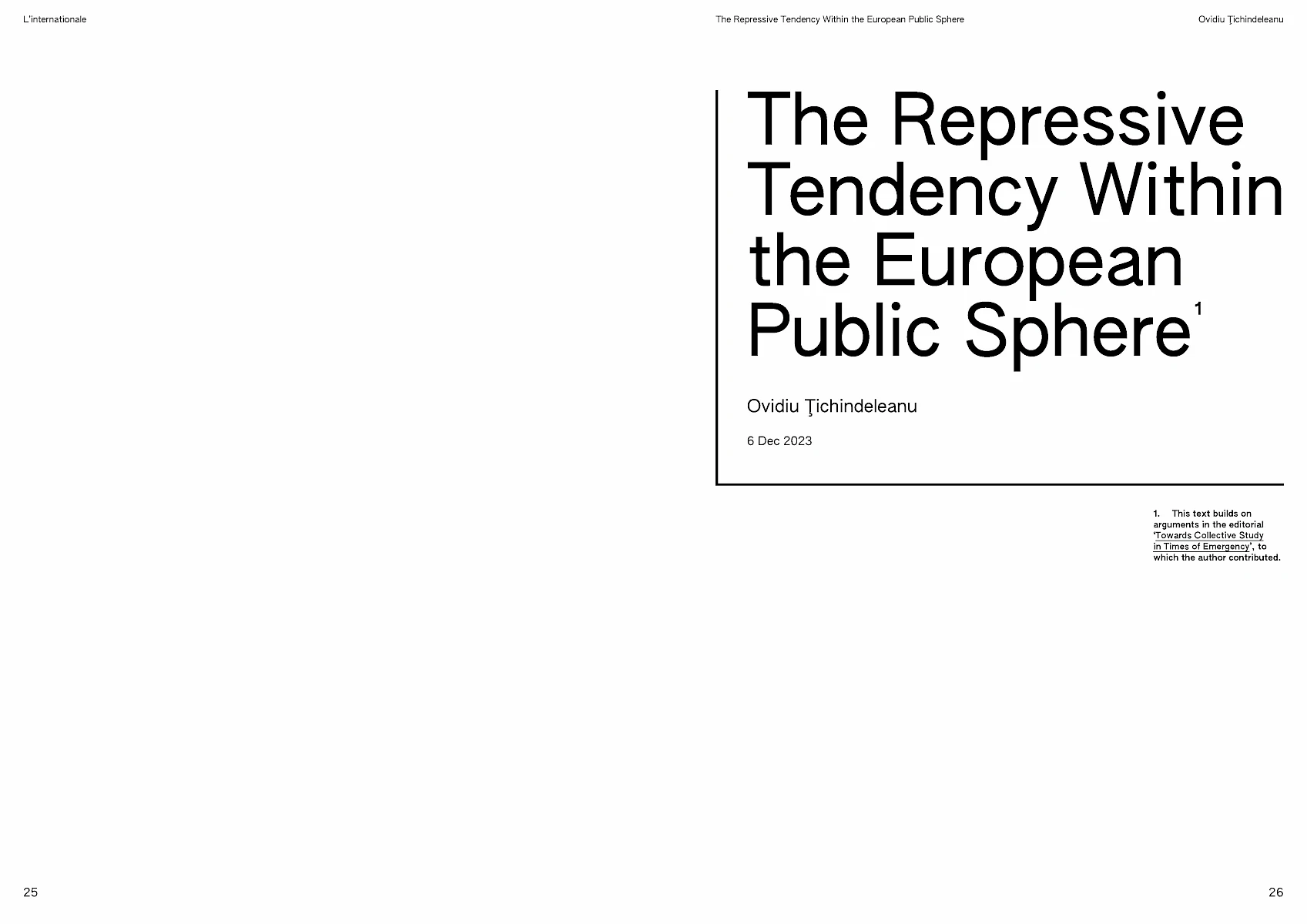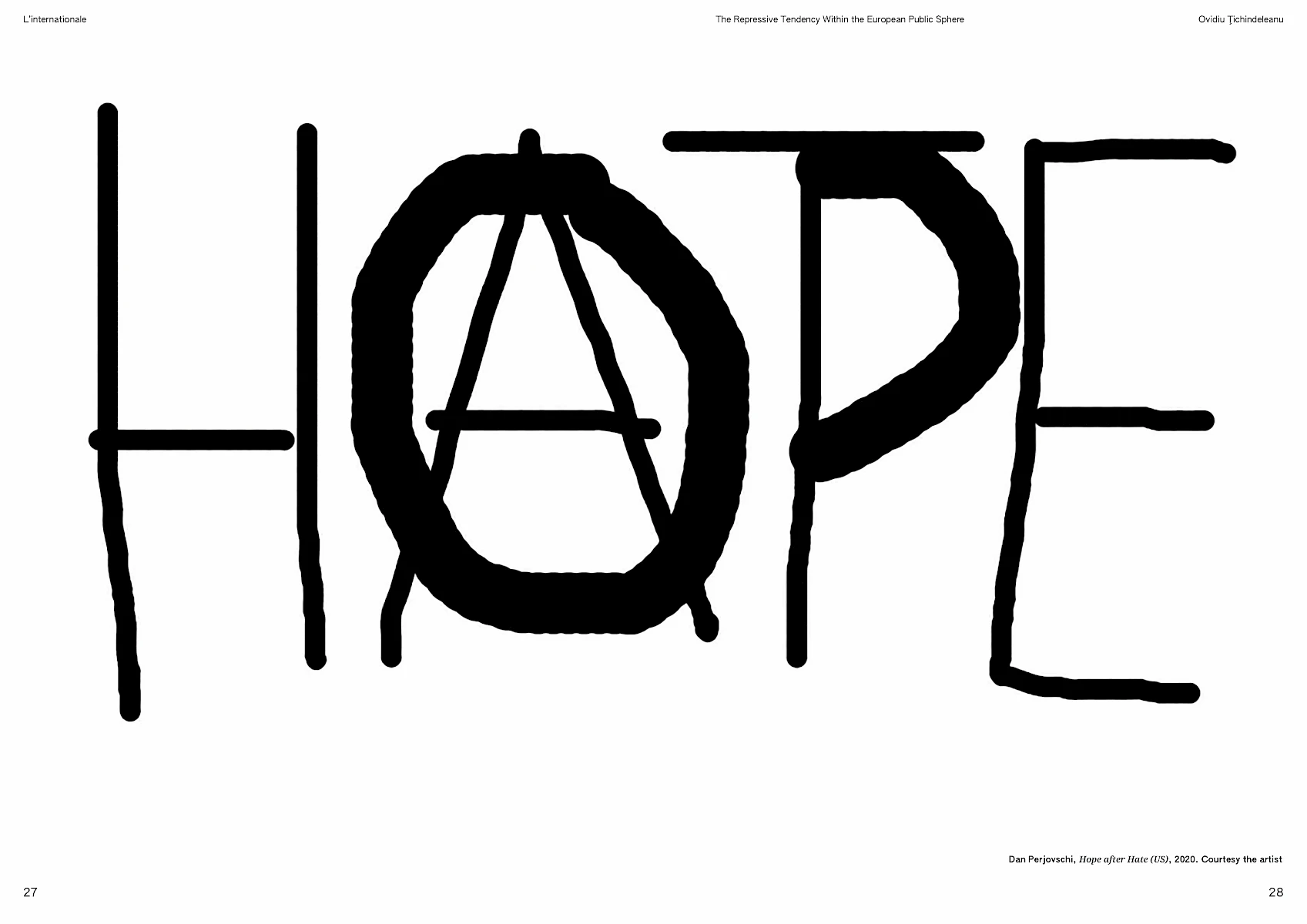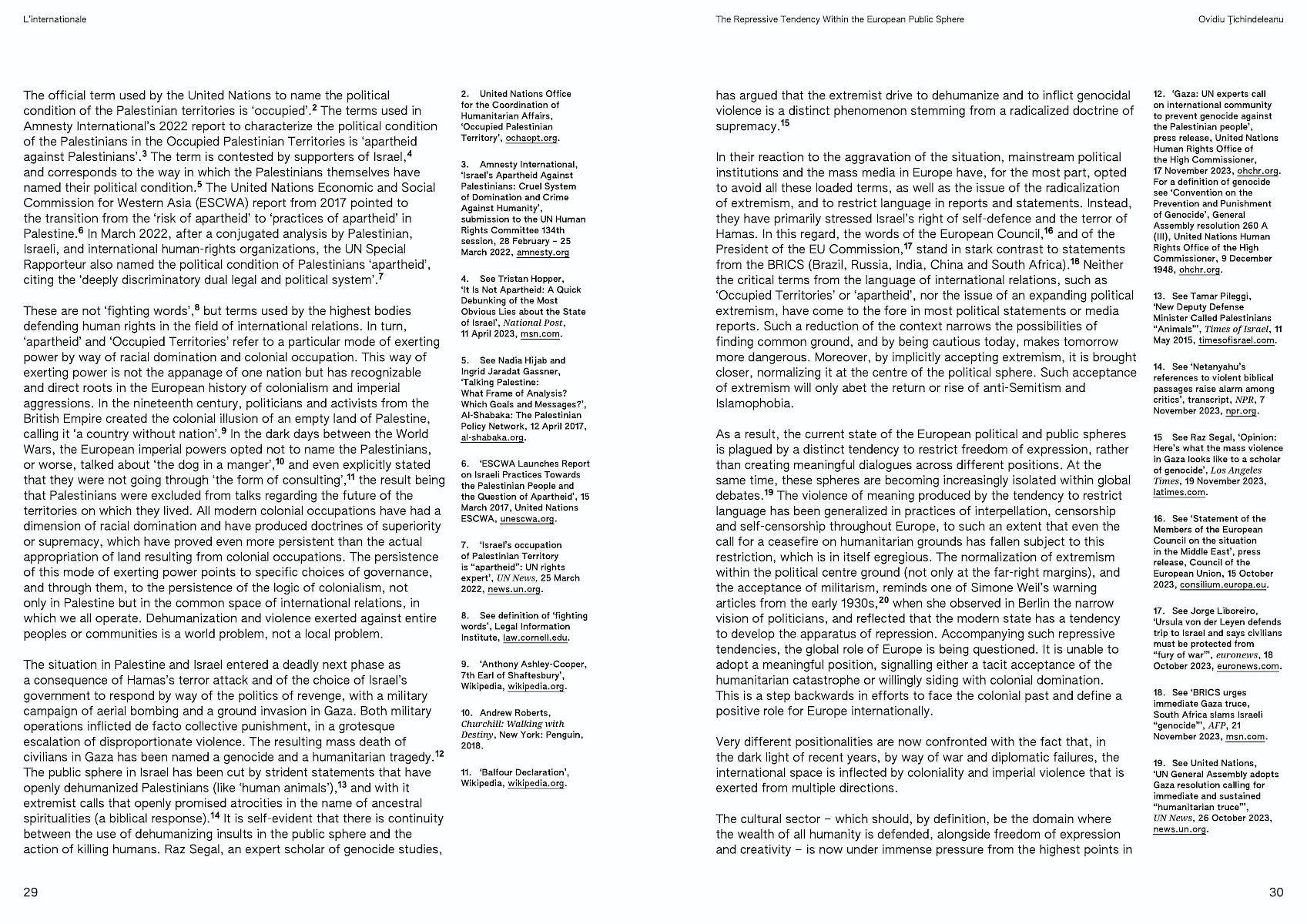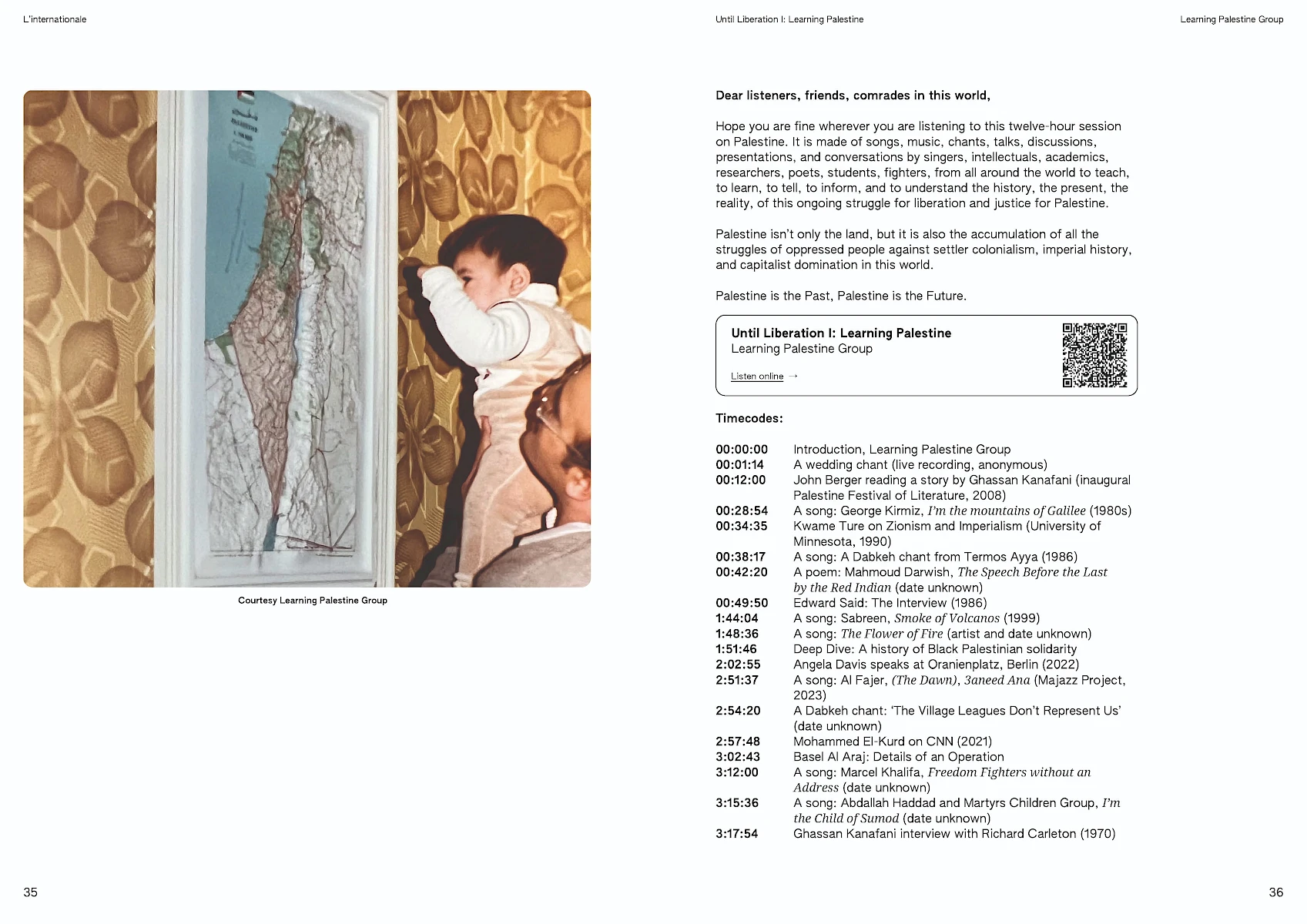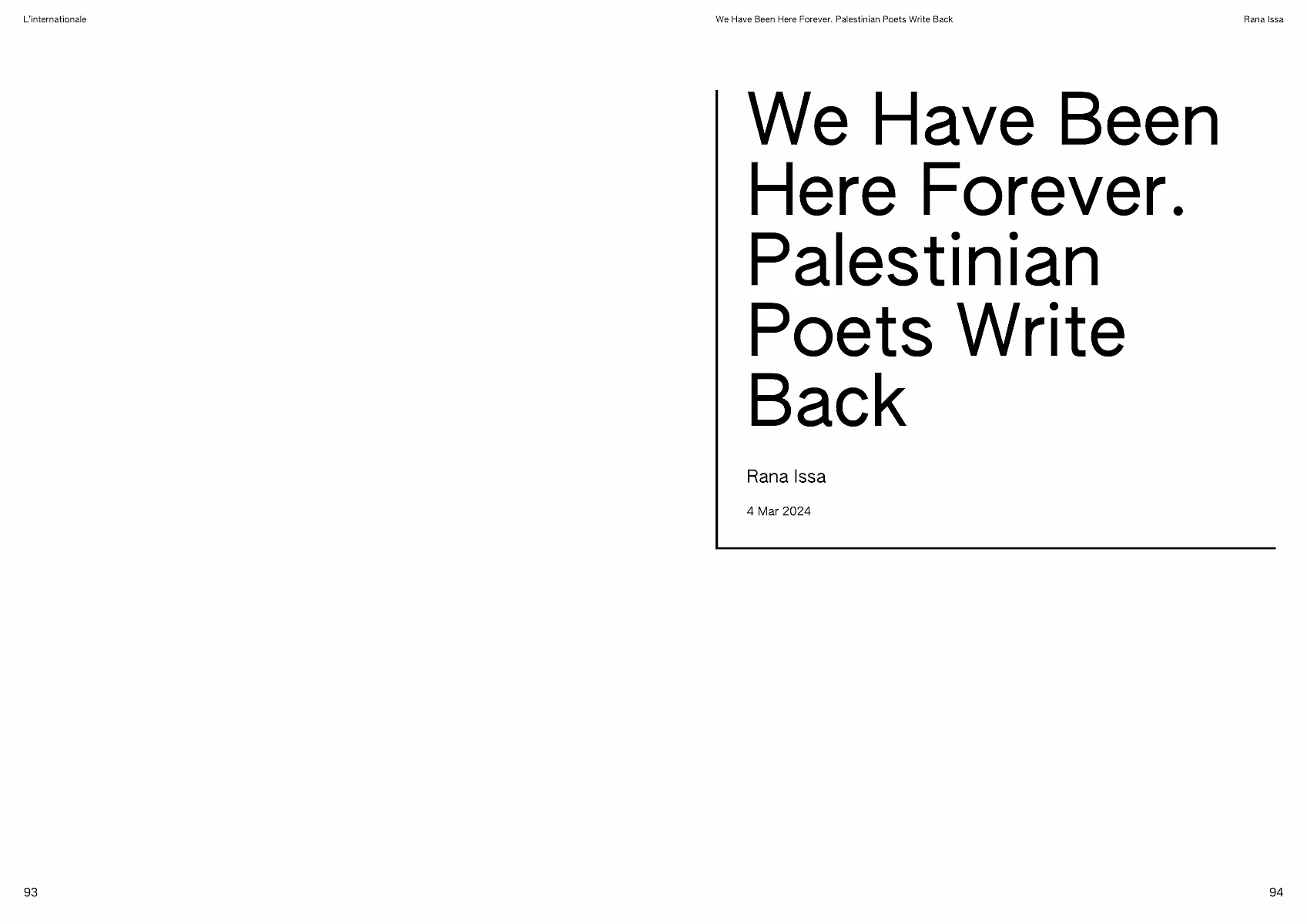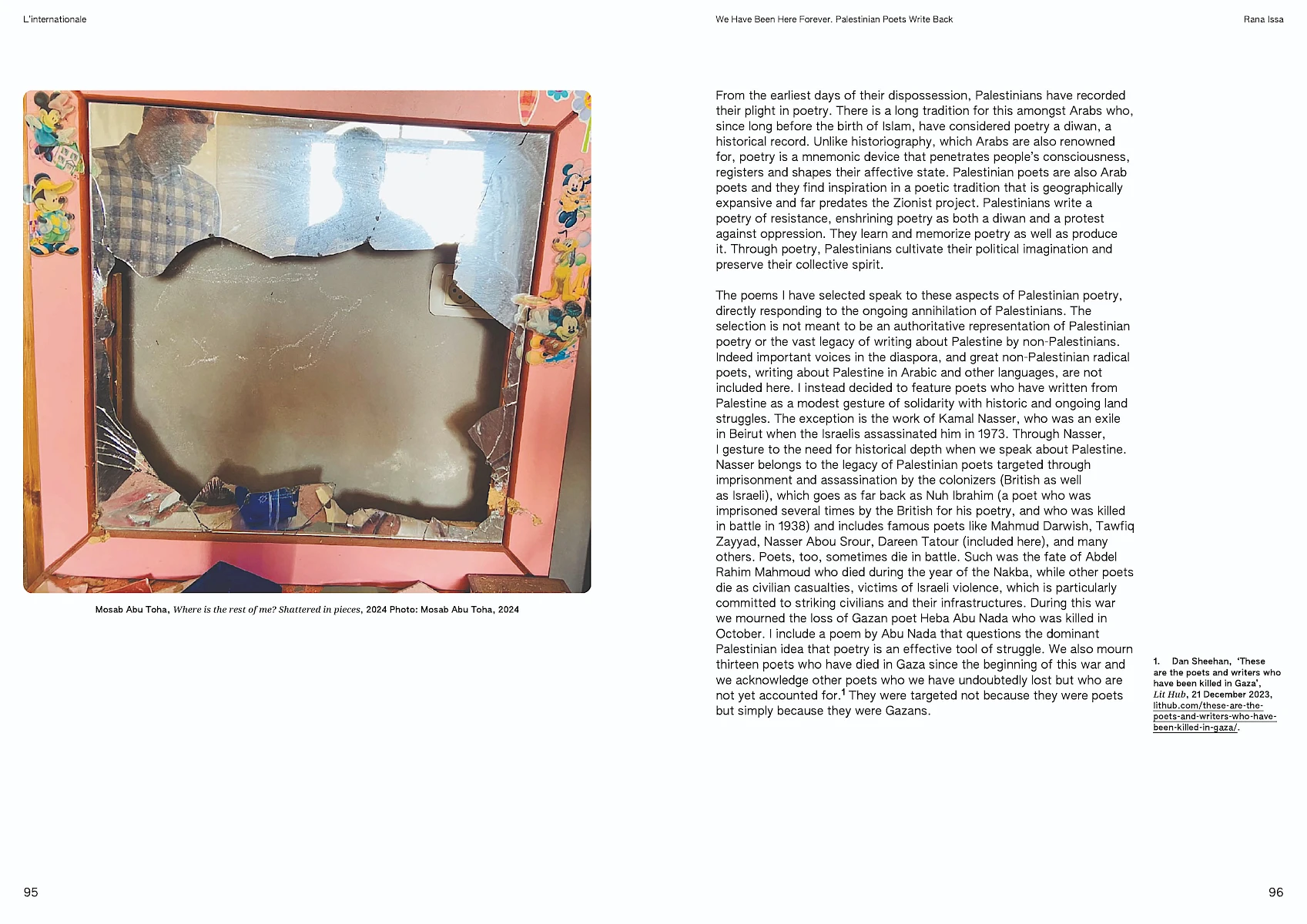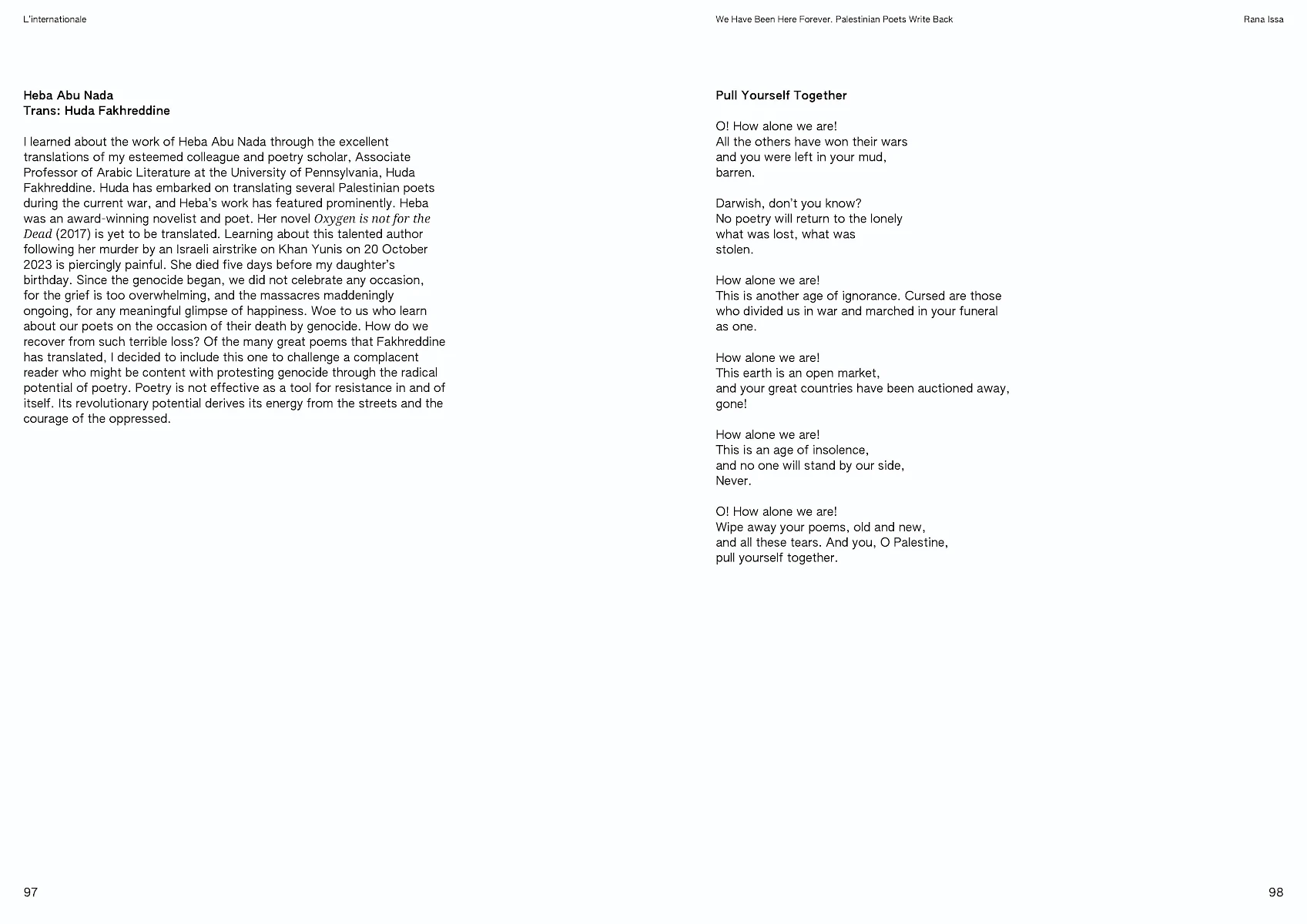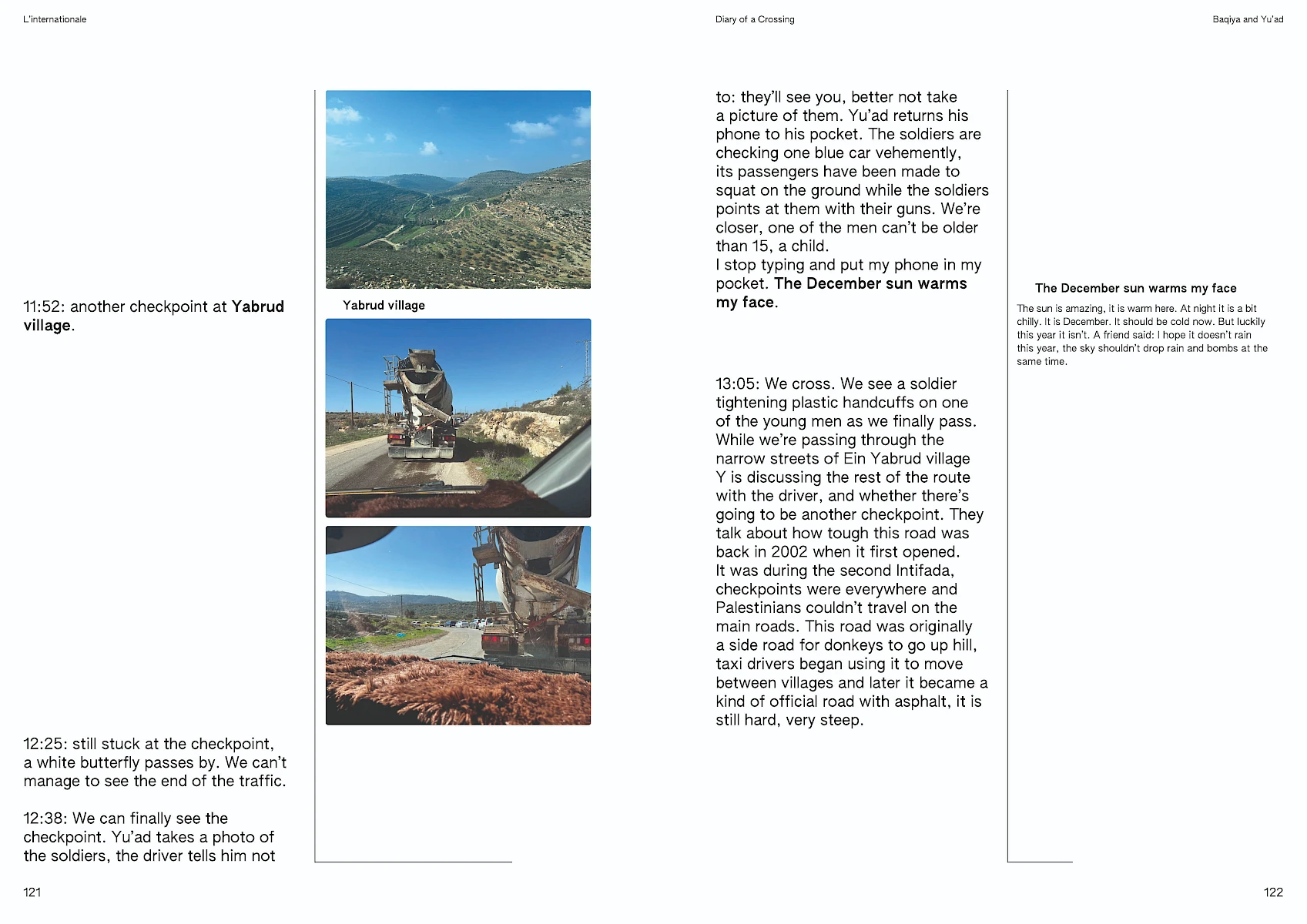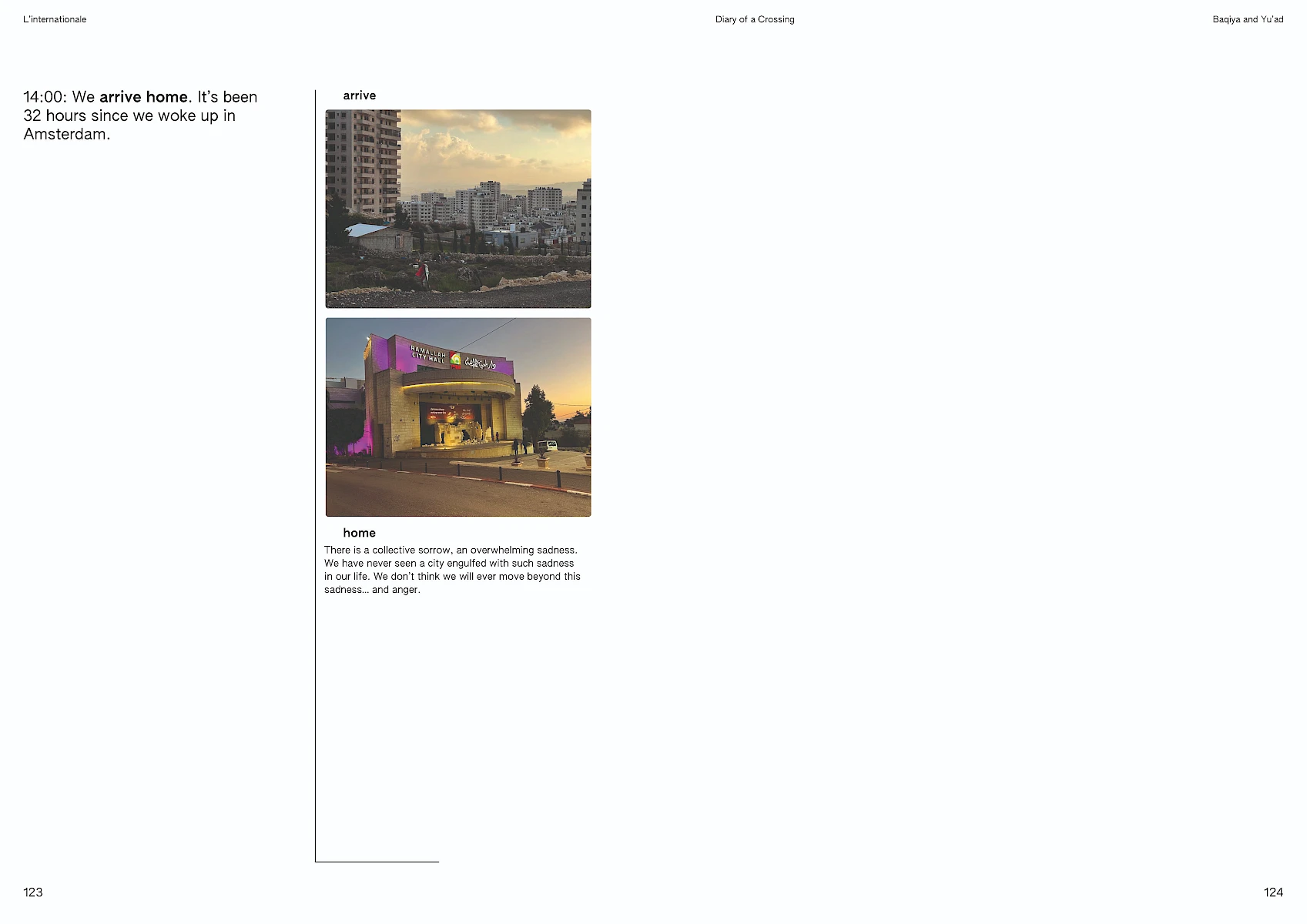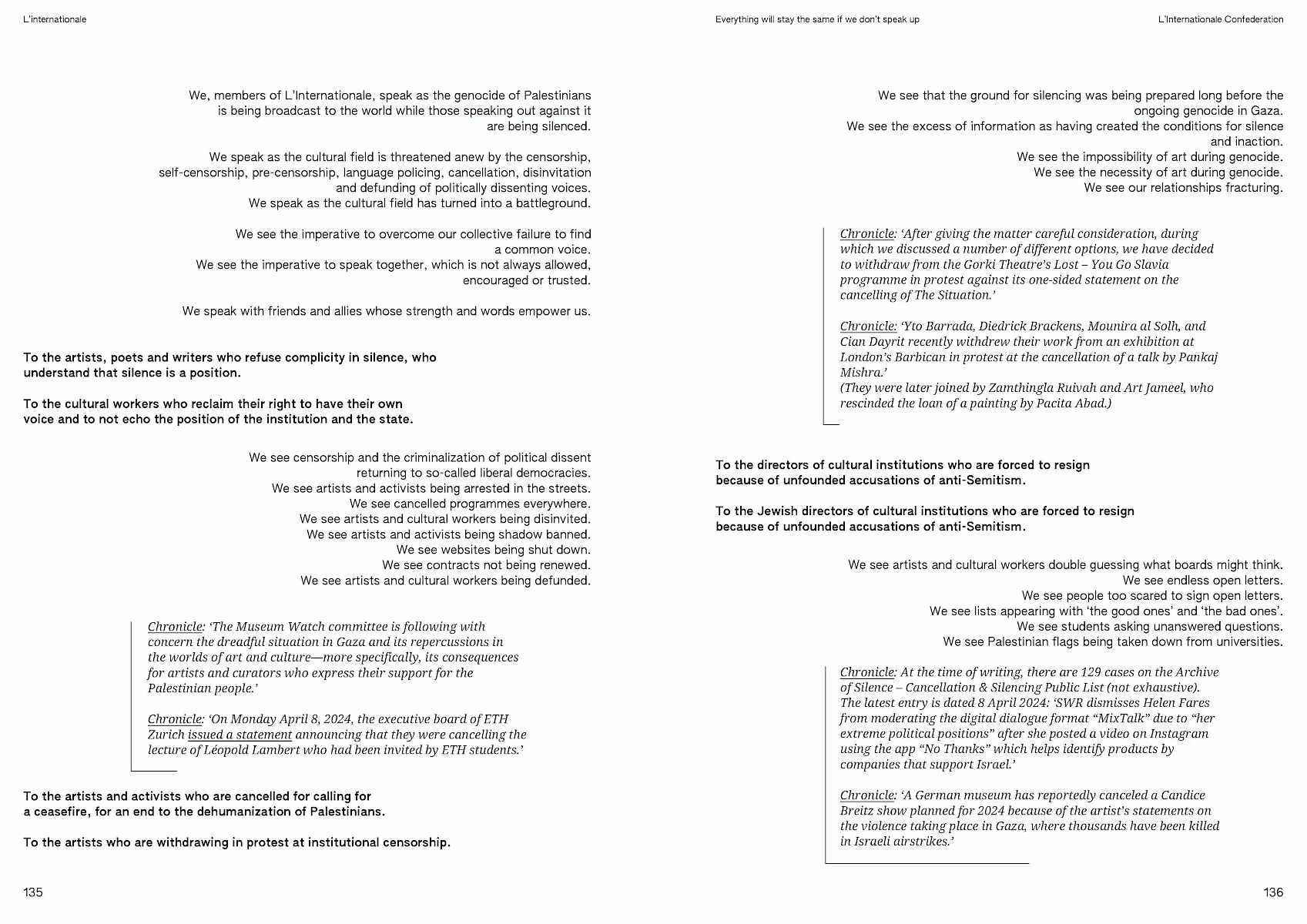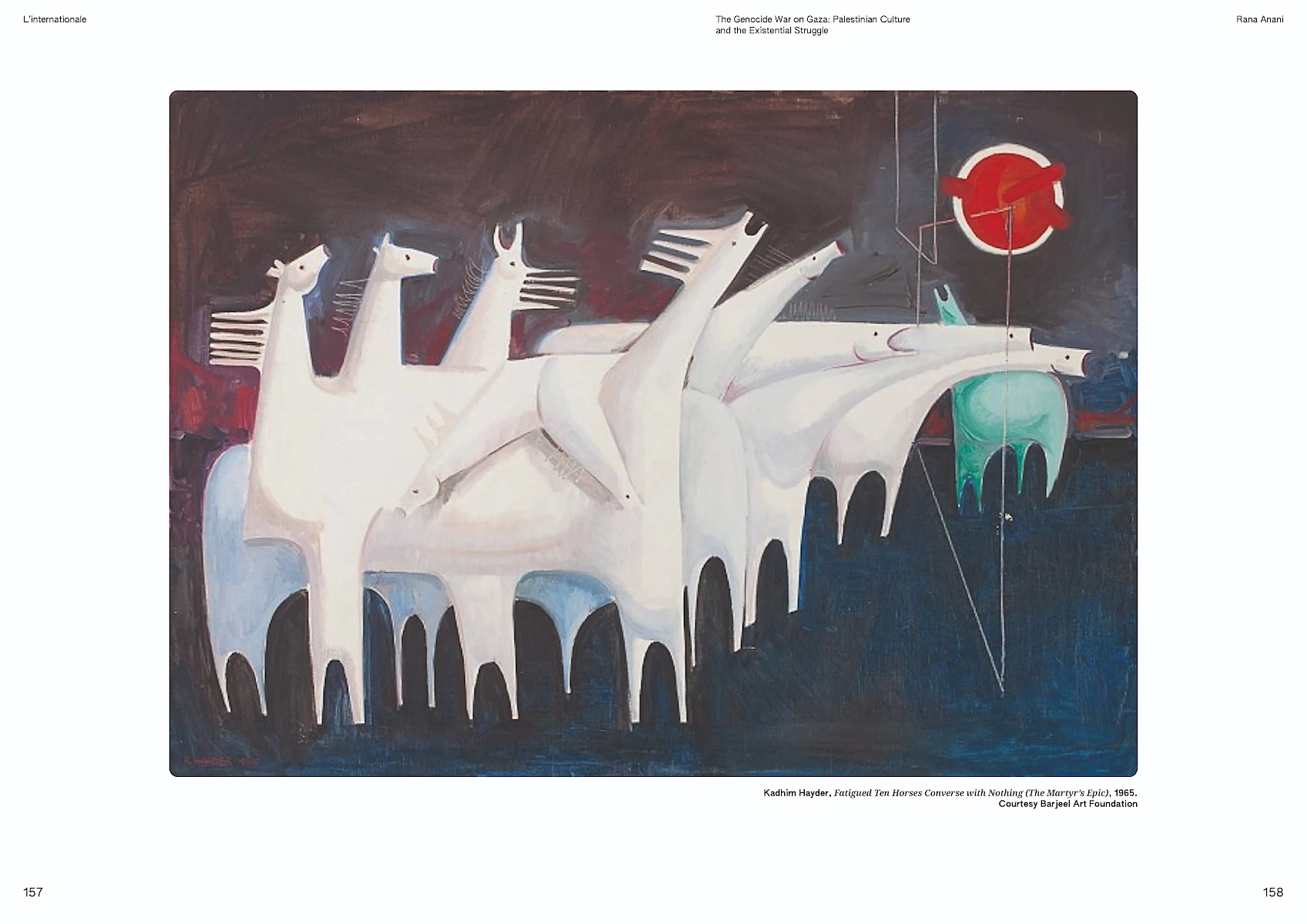Collective Study in Times of Emergency
eBook publication
EDITORS
Nick Aikens, Sara Buraya Boned, Lama El Khatib, Charles Esche, Martin Pogačar, Ovidiu Țichindeleanu, Ezgi Yurteri
GRAPHIC DESIGN
Anja Groten
COVER PHOTO
Baqiya and Yu’ad
GENERAL COORDINATOR
HDK-Valand Academy of Art and Design, Gothenburg University
This publication is available as a print-on-demand via lulu.com
Contents
-
1.Table of contents
-
21.Contributor bios
-
22.Colophon
Collective Study in Times of Emergency brings together nineteen contributions published by L’Internationale Online since November 2023 under the strand ‘Towards Collective Study in Times of Emergency’. The contents span essays, collective writing, selections of poetry, listening sessions, DJ sets and much more. Unlike previous publications assembled and edited by L’Internationale Online, the publication was not preconceived as a book. As the first editorial from November 2023 articulates, the impulse, urgency and necessity for this work was to try to understand the implications of the genocide unfolding in Gaza for the cultural sphere, from the places in which L’Internationale’s partners operate.
Working with members of our editorial board, we invited contributions as a means to engage with what Fred Moten describes as ‘collective study’ – what he and Stefano Harney have expanded on as a form of ‘study without an end’ – as both a means to work beyond the limitations and pitfalls of the ‘statement’, the single utterance, and to come into relation with practitioners, communities and contexts affected by the genocide. The commissions have come out of long-term relationships, friendships and new encounters: from within the confederation, through the programmes of some of our partners, and most importantly, with peers and allies within the Palestinian cultural ecosystem.
We, members of L’Internationale Online editorial board, feel this is one of the most transversal publications we have worked on – one that, we hope, has the capacity to connect with a broad set of audiences and publics, across student, activist, artistic and institutional communities. Our intention in putting these contributions together in a publication is for it to circulate and be used within and beyond the circuits of the arts and academia.
As an editorial group, we have tried to think through different voices, different registers, to respond or react as best we could to the shifting conjuncture. The publication serves as a mid-punctuation point – it presents the process of the Collective Study strand so far, rather than being a full stop or an ending. The times of emergency are ongoing and so too is this work.
This publication is available as a print-on-demand via lulu.com
